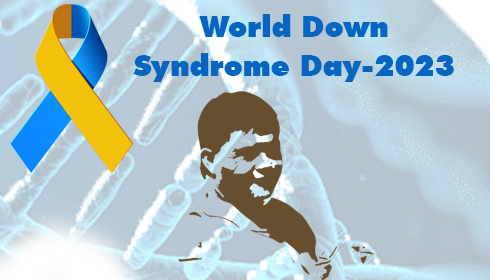
German scientists discover gene behind AML among Down syndrome kids
People with Down syndrome who have a triple copy of chromosome 21 (trisomy 21) are extremely vulnerable to developing aggressive Acute Myeloid Leukemia (AML). According to various estimates, Down Syndrome is the most common congenital genetic disorder, affecting one in every 700 newborn babies.
Multiple studies show that in the first four years of life, these children are more than 100 times more likely to develop Acute Myeloid Leukemia than children who do not have trisomy 21.
Though scientists have long suspected that third chromosome 21 is to blame for the high incidence of AML in children with Down syndrome, they have been unable to pinpoint the exact cause.
For the first time, a team of researchers led by Professor Jan-Henning Klusmann, Director of the Department of Paediatric and Adolescent Medicine at University Hospital Frankfurt, has discovered how the extra chromosome 21 can promote AML.
With the help of genetic technology, CRISPR-Cas9, the researchers examined each of the 218 genes on chromosome 21 for its carcinogenic effect.
According to the researchers, it emerged that the RUNX1 gene is responsible for the chromosome’s specific carcinogenic properties.
During further analyses, the researchers were able to corroborate that only one particular variant of the gene promotes the development of leukaemia.
Explaining their findings, Prof Klusmann said, “Other RUNX1 isoforms were even able to prevent the cells from degenerating. This explains why RUNX1 has so far not stood out in several decades of extensive cancer research.”
According to researchers, the RUNX1 gene encodes a protein responsible for regulating the activity of other genes and regulates many processes, including embryonic development and early and late haematopoiesis, or blood formation. Disruption of this regulator hence is a key event in the development of AML.
“Thanks to our research results, we now have a better understanding of what happens in leukemogenesis,” explained Prof Klusmann, an expert in paediatric cancer. “The study underlines how important it is to examine all gene variants in carcinogenesis. In many cases, certain mutations in cancer cells alter how these variants form,” he said.
Pointing out that these insights are important for a better understanding of the complex mechanisms of carcinogenesis, Prof Klusmann stated, “In this way, we have laid the groundwork for developing more sophisticated therapeutic approaches.”
“Through our biochemical analyses, we now know exactly how the gene variant alters the blood cells. From there, we were able to use specific substances that block the disease mechanism.”
The researchers said that they now intend to further explore the effect of these substances for use in medical care.
“On the basis of our expertise, we now want to develop therapies to correct this malfunction. Applying them in clinical practice will certainly take a few more years, but hopefully, they will lead in the future to sparing our young patients from intensive chemotherapy,” Prof Klusmann said.